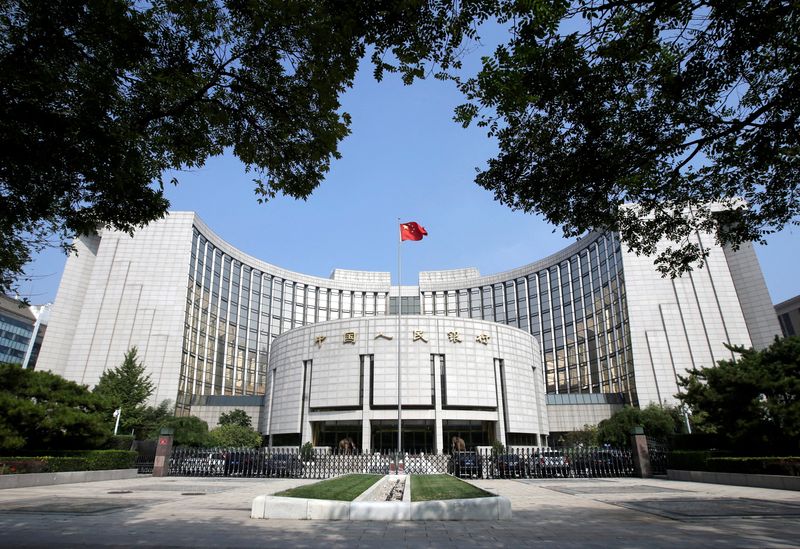By Kevin Yao and Ella Cao
BEIJING (Reuters) -New bank lending in China jumped in September from the previous month but fell short of expectations, as markets await further details on fiscal stimulus measures that analysts say could boost credit growth and galvanise the economy.
China pledged on Saturday to "significantly increase" debt to stimulate growth, but officials provided no specific information on the size or timing of the planned fiscal package.
Chinese banks extended 1.59 trillion yuan ($225 billion) in new yuan loans in September, up 77% from August, data released by the People's Bank of China showed.
Analysts polled by Reuters had predicted new yuan loans would rise to 1.87 trillion yuan last month from 900 billion yuan the previous month and 2.31 trillion yuan a year earlier.
"Despite monetary easing and a pick-up in government bond issuance, both broad credit and bank loan growth hit fresh lows in September," Capital Economics said in a note.
"While the PBOC will continue to loosen policy, this is unlikely to boost loan demand much. A turnaround in credit growth, and therefore economic activity, would require a more substantial step up in government borrowing."
But Zhou Hao, chief economist at Guotai Junan International, said he expected credit data in October to get a boost from the latest policy stimulus.
The People's Bank of China (PBOC) does not provide monthly breakdowns but Reuters calculated the September figures based on the bank's January-September data released on Monday, compared with the Jan-August figure.
The PBOC said new yuan loans totalled 16.02 trillion yuan for the first nine months of the year.
Household loans, including mortgages, rose to 500 billion yuan in September from 190 billion yuan in August, while corporate loans rose to 1.49 trillion yuan from 840 billion yuan, according to Reuters calculations based on central bank data.
To spur growth, the central bank in late September unveiled its most aggressive monetary stimulus package since the COVID-19 pandemic, coupled with extensive property market support including mortgage rate cuts.
Analysts expect the central bank to ease policy further.
AWAITING FISCAL STIMULUS DETAILS
Chinese leaders also pledged to deploy "necessary fiscal spending" to meet this year's growth target of around 5%.
Last week, the head of China's state planner said the country was "fully confident" of achieving the 2024 growth target but refrained from introducing stronger fiscal steps, disappointing investors who had bet that more policy support will be needed to get the economy back on solid footing.
The central bank earlier pledged that banks would lower mortgage rates for existing home loans before Oct. 31, as part of a broader strategy to support the property market.
Broad M2 money supply grew 6.8% from a year earlier, central bank data showed, above analysts' forecast of 6.4% in the Reuters poll. M2 grew 6.3% in August from a year ago.
Outstanding yuan loans grew 8.1% in September from a year earlier - the lowest on record, compared with 8.5% growth in August. Analysts had expected 8.3% growth.
Growth of outstanding total social financing (TSF), a broad measure of credit and liquidity in the economy, slowed to 8.0% in September from 8.1% in August, also hitting a record low.

TSF includes off-balance sheet forms of financing that exist outside the conventional bank lending system, such as initial public offerings, loans from trust companies, and bond sales.
In September, TSF rose to 3.76 trillion yuan from 3.03 trillion yuan in August. Analysts polled by Reuters had expected September TSF of 3.73 trillion yuan.